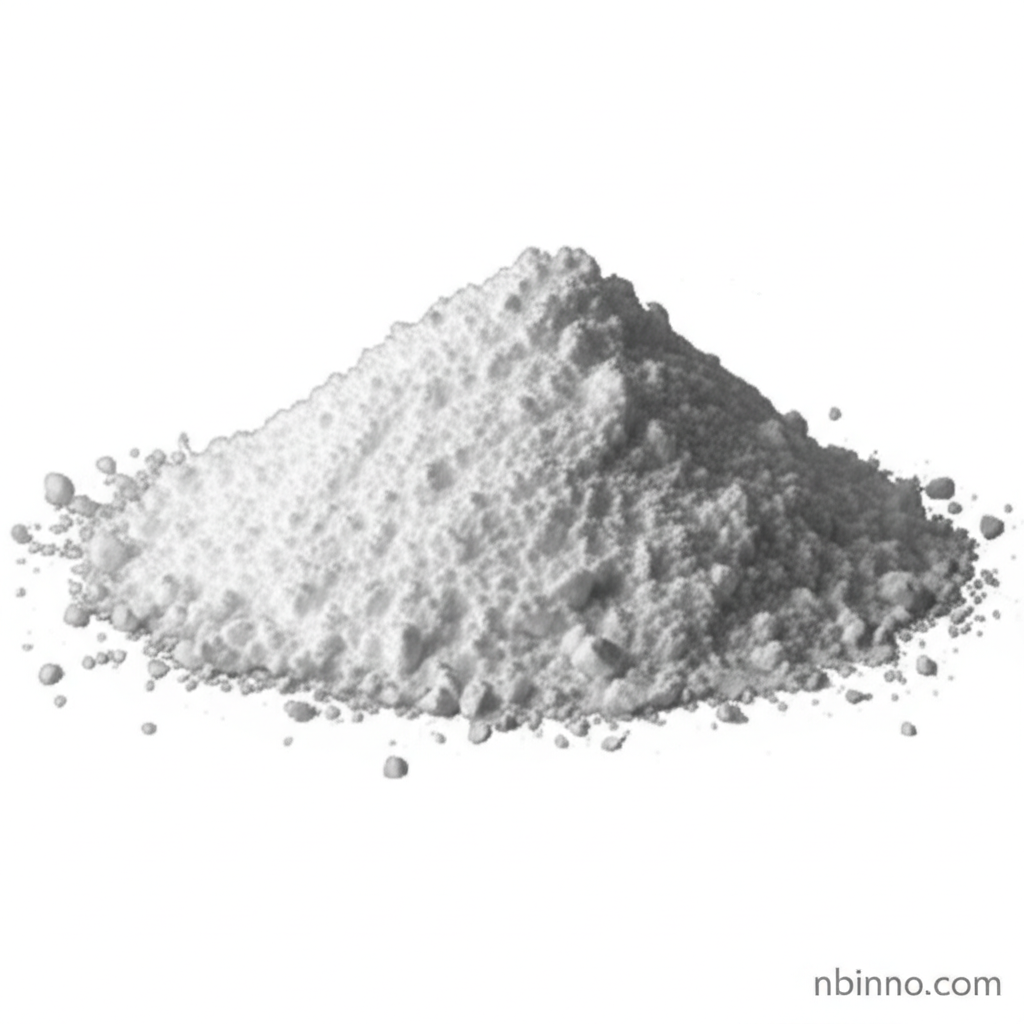Aluminum Chloride: A Versatile Lewis Acid Catalyst for Organic Synthesis and Industrial Applications
Unlock chemical reactions with Aluminum Chloride – your powerful Lewis acid catalyst for diverse industrial needs.
Get a Quote & SampleProduct Core Value

Aluminum Chloride
Aluminum Chloride (AlCl3) is a cornerstone inorganic compound renowned for its potent Lewis acid properties, making it an indispensable catalyst in a vast array of organic synthesis pathways and industrial applications. Its chemical structure and reactivity enable crucial transformations, driving innovation across numerous sectors.
- Discover the power of aluminum chloride as a Lewis acid catalyst, crucial for driving intricate organic synthesis reactions and facilitating efficient chemical transformations.
- Explore the extensive industrial applications of aluminum chloride, from its vital role in the petrochemical sector to its use in producing pharmaceuticals and dyes.
- Learn about the key chemical properties of aluminum chloride, including its hygroscopic nature and significant reactivity, essential for understanding its catalytic mechanisms.
- Understand the importance of aluminum chloride in Friedel-Crafts reactions, a fundamental process for creating carbon-carbon bonds in complex organic molecules.
Key Advantages
Unparalleled Catalytic Activity
Leverage the strong Lewis acidity of aluminum chloride to accelerate a wide spectrum of organic reactions, significantly enhancing reaction efficiency and product yields for your critical manufacturing processes.
Broad Application Spectrum
From pharmaceuticals and dyes to petrochemicals and lubricants, aluminum chloride serves as a versatile reagent, supporting diverse chemical production needs and enabling the creation of essential everyday products.
Reliable Performance
Ensure consistent and dependable results in your chemical processes with high-purity aluminum chloride, a critical chemical reagent that performs reliably under various reaction conditions.
Key Applications
Organic Synthesis Catalyst
Aluminum chloride is a vital catalyst in organic synthesis, particularly for Friedel-Crafts alkylation and acylation reactions, which are fundamental for building complex organic molecules.
Petrochemical Industry
In the petrochemical sector, aluminum chloride is used in processes like petroleum cracking and isomerization, contributing to the production of refined fuels and chemical feedstocks.
Pharmaceutical and Dye Production
The compound plays a crucial role in the synthesis of pharmaceutical intermediates and the manufacturing of various dyes, underscoring its importance in these high-value industries.
Lubricants and Rubber Manufacturing
Aluminum chloride also finds applications in the production of lubricants and in the rubber synthesis industry, showcasing its broad utility across different chemical manufacturing processes.
